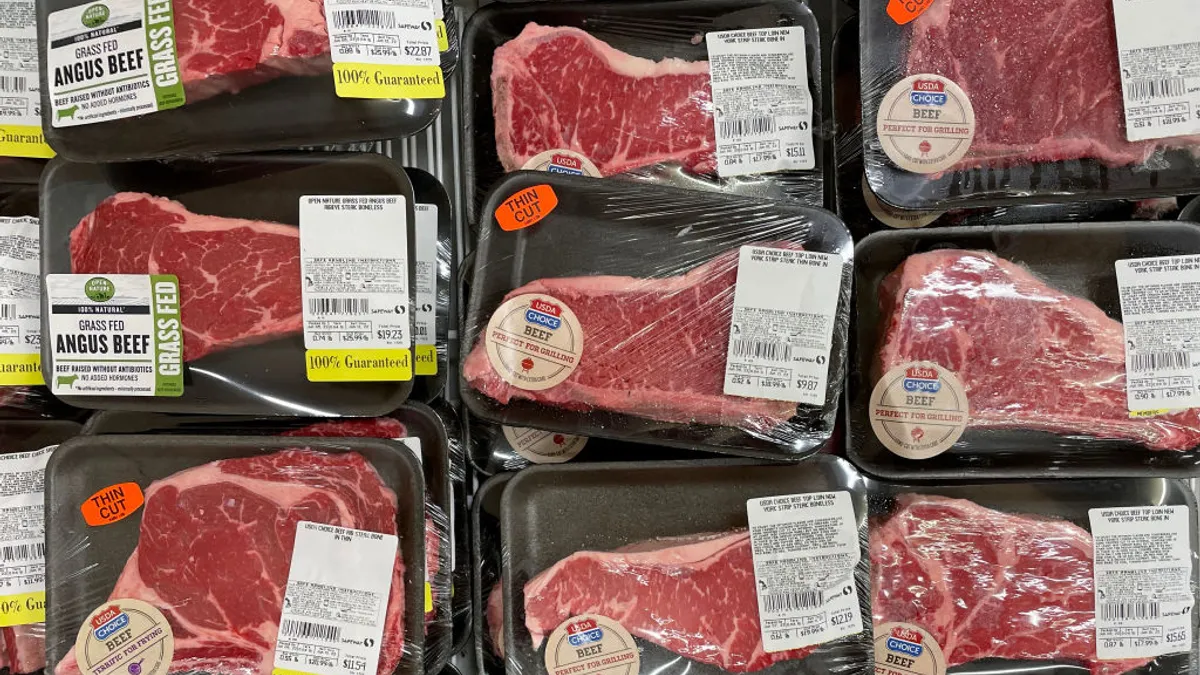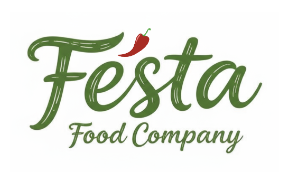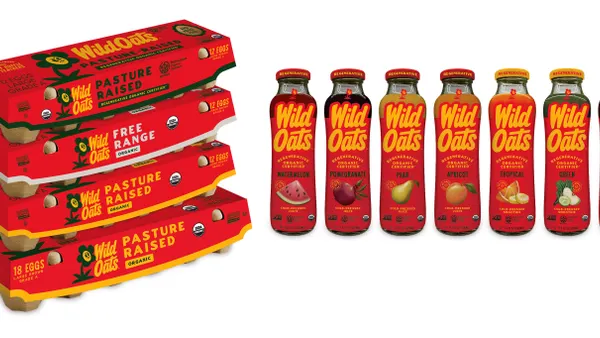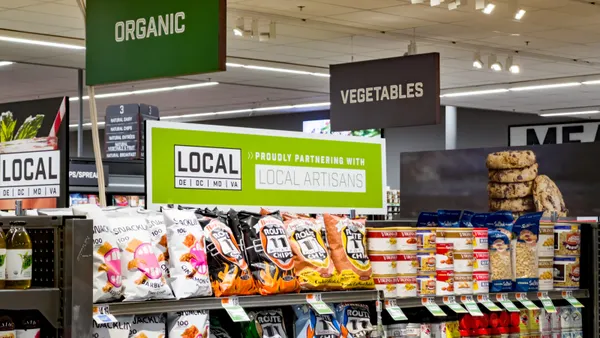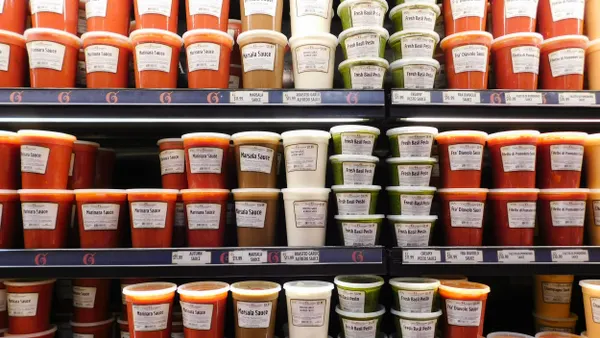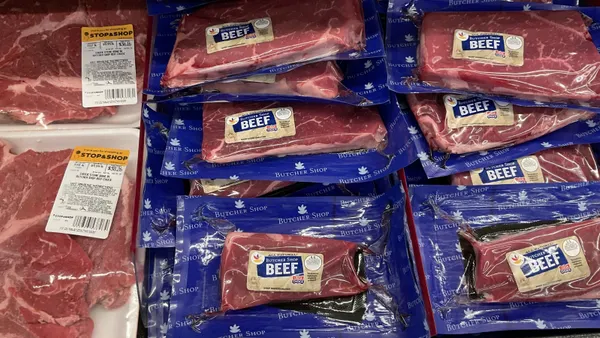Dive Brief:
- Food-at-home prices increased at an annual pace of 2.7% in September, the same rate as during the prior month, according to Consumer Price Index data released Friday by the U.S. Bureau of Labor Statistics.
- Across-the-board inflation moved up to 3%, the quickest pace since January.
- Prices for meat rose 8.5% in September compared with the same period last year, continuing an upward trend that began in June.
Dive Insight:
While the overall pace of grocery inflation was unchanged in September, that data point masks fast-rising prices for meat, a key category for retailers.
Beef and veal prices rose especially rapidly last month, as prices for the commodity gained 14.7%, up from 13.9% in August. Prices for uncooked beef roasts rose 18.4% in September, while raw beef steaks rose 16.6% and uncooked ground beef prices tacked on 12.9%.
Prices for beef and veal have been rising steadily for much of 2025, accelerating their pace every month since May. The Trump administration has said it plans to try to remedy the situation by boosting beef imports from Argentina, a move that critics have said would harm U.S. beef producers.
Pork prices, on the other hand, moved up in September by less than 2%, although prices for bacon and related products tacked on almost 6%, a figure that was down from 7.2% in August.
Prices for many fruits and vegetables were up last month, with apples up 5.3%, bananas rising 6.9% and lettuce up 4.2%.
Frozen fish and seafood prices rose at a yearly clip of 6.6% in September, but the shelf-stable variety of those foods fell 3%. Overall, fish and seafood costs moved up 2.1% last month.
Egg prices receded 1.3% in September, a U-turn from the nearly 11% annual increase recorded in August.
Other foods that declined in price last month included butter and margarine, which declined 2%, and peanut butter, which moved down 1.2%.
Food prices have been increasing against a fraught political backdrop that could impact millions of people who depend on government aid to pay for groceries. The USDA said last week that SNAP benefits are at risk of not being distributed in November because of the ongoing federal government shutdown. In addition, federal workers who have not been paid because of the shutdown have been turning to food banks for assistance, according to media reports.



